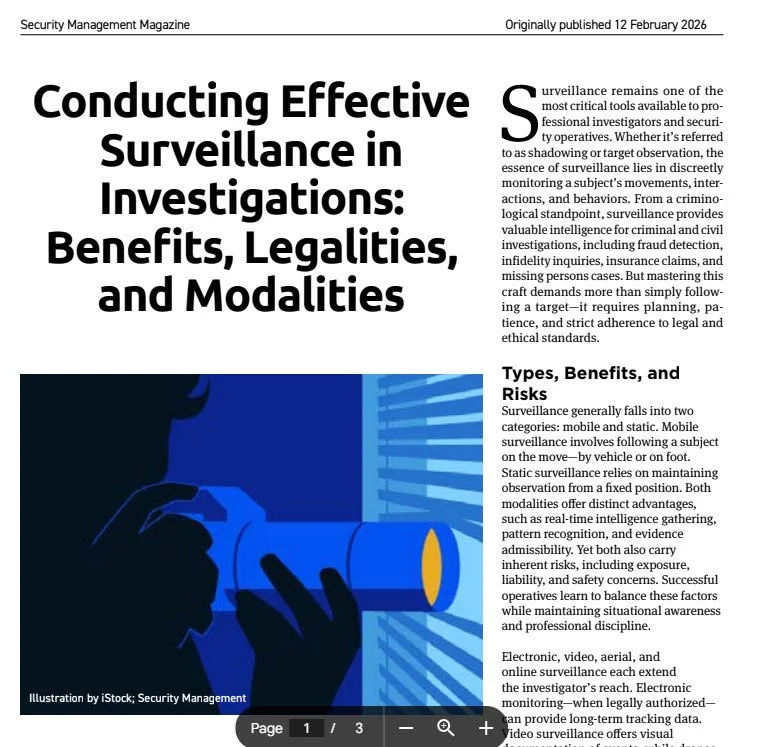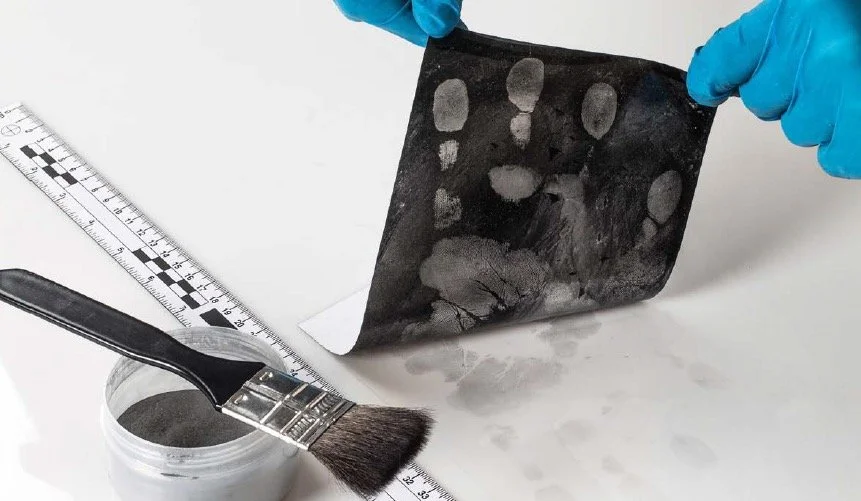In the world of private investigations and security operations, surveillance is a cornerstone technique. Often called "shadowing" or "target observation," it involves discreetly tracking a person's activities, interactions, and habits. This method delivers crucial insights for cases like fraud, infidelity, insurance verification, and locating missing individuals. However, success hinges on meticulous planning, unwavering patience, and a firm commitment to legal and ethical principles.
Understanding the Types, Advantages, and Potential Pitfalls
Surveillance can be broadly divided into mobile and static approaches. Mobile surveillance means tailing a subject on the go, whether by car or on foot. Static surveillance, on the other hand, involves watching from a stationary spot. Both provide benefits like immediate data collection, identifying behavioral patterns, and gathering court-admissible evidence. That said, they come with challenges such as the risk of being spotted, legal liabilities, and personal safety issues. Skilled professionals weigh these elements carefully, staying alert and disciplined throughout.
Beyond traditional methods, modern tools expand capabilities. Legally approved electronic tracking offers ongoing location data. Video recording captures visual proof, while drones handle hard-to-reach or expansive areas. Online methods, including open-source intelligence (OSINT) and social media review, reveal patterns without physical proximity. All these must comply with privacy regulations, which differ by location, to uphold professionalism.
Licensed investigators don't get a free pass on privacy or trespassing rules. They can't enter private land without consent, breach restricted zones, use tricks to access forbidden areas, harass or intimidate subjects, or act in a threatening way. Breaking these can lead to criminal charges, lawsuits, or license loss. The focus is on ethical gathering: improper methods can invalidate evidence and harm everyone involved.
Getting Ready: Preparation and Setup for Success
Preparation is key before starting any surveillance. Investigators need detailed subject info, like recent photos, vehicle descriptions, associates, and common paths. Choose an ordinary vehicle to blend in. Gear up with communication devices, dash cameras, binoculars, GPS, and alternative navigation options. Map out routes, select main and backup vantage points, and plan for quick exits or restarts.
A solid mental checklist includes knowing the target, testing equipment, scouting the area, and preparing for surprises. Stay composed, pace yourself with the subject, avoid reckless actions, and use techniques like vehicle rotations or parallel tracking for better cover. Team coordination ensures smooth handoffs to avoid detection.
Stationary Surveillance and Maintaining a Believable Cover
For fixed surveillance, a plausible reason for being there is essential. This could mean acting as a surveyor, delivery person, or solicitor—whatever fits the scene naturally. Stay noticeable but non-intrusive, switch outfits if needed, and never pretend to be from official entities or real businesses. If questioned, respond calmly and politely.
To avoid issues, pros often alert local police via non-emergency channels about their presence, reducing the chance of "suspicious activity" calls.
Staying Ahead of Detection: Countersurveillance Tactics
Subjects might try to spot or shake off tails with abrupt turns, stops, or frequent checks. If detected, back off, reroute, or switch teams. Objectivity and patience are vital to protect the operation and safety.
Prioritizing Law, Safety, and Ethics
Legality is non-negotiable in surveillance. Avoid trespassing, harassment, or confrontations—your role is to watch and record, not engage. If you witness a crime, call authorities right away.
Follow road rules, drive safely, and put public well-being first, even if it means losing sight temporarily. No assignment is worth endangering lives or your credentials.
Recording and Reporting: Turning Observations into Evidence
Detailed notes turn raw sightings into useful intel. Use mnemonics like RACES (race, age, complexion, eyes, sex) for people, adding hair, height, weight, clothes, tattoos, and unique traits. For vehicles, CYMBALS (color, year, make, body, additional features, license, state) helps.
Reports should objectively detail movements, contacts, and routines without guesses. Include timestamps in 24-hour format, and add legal photos or videos for strength.
The Essential Surveillance Checklist
Seasoned investigators run through a pre-op list: confirm permissions, align with client goals, check gear, review target details, sync with the team, set comms, map routes, pick alternates, prep vehicle, craft covers, notify police if needed, and plan for glitches like detection or breakdowns.
These steps, though basic, often make or break the mission.
Effective surveillance isn't about chance—it's built on thorough prep, legal compliance, and flexibility. Every case is different, demanding readiness for the unforeseen. As Theodore Roosevelt said, "Believe you can and you’re halfway there." In investigations, that belief pairs with expertise, legality, and ethics for honorable results.









